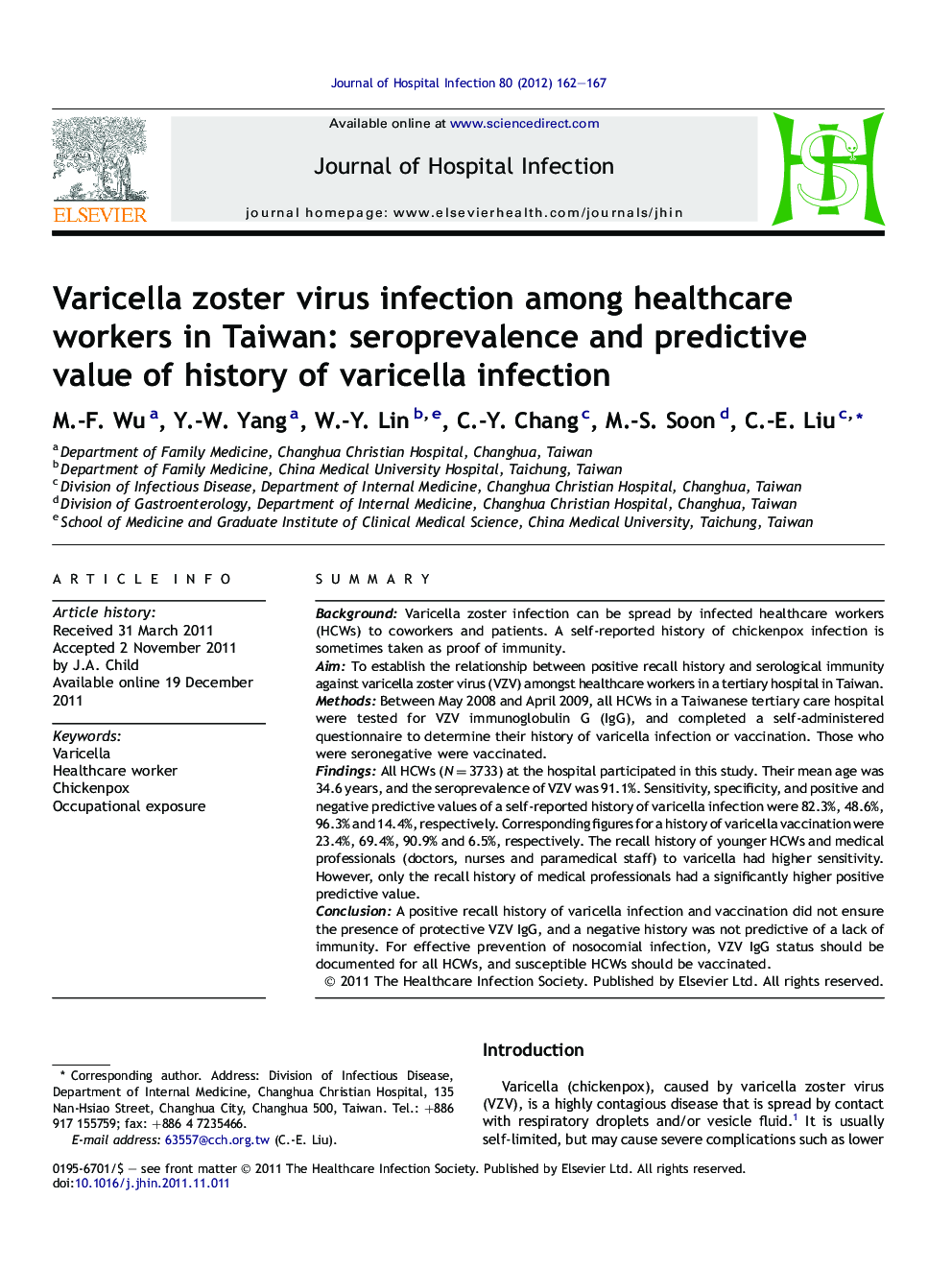| Article ID | Journal | Published Year | Pages | File Type |
|---|---|---|---|---|
| 3372552 | Journal of Hospital Infection | 2012 | 6 Pages |
SummaryBackgroundVaricella zoster infection can be spread by infected healthcare workers (HCWs) to coworkers and patients. A self-reported history of chickenpox infection is sometimes taken as proof of immunity.AimTo establish the relationship between positive recall history and serological immunity against varicella zoster virus (VZV) amongst healthcare workers in a tertiary hospital in Taiwan.MethodsBetween May 2008 and April 2009, all HCWs in a Taiwanese tertiary care hospital were tested for VZV immunoglobulin G (IgG), and completed a self-administered questionnaire to determine their history of varicella infection or vaccination. Those who were seronegative were vaccinated.FindingsAll HCWs (N = 3733) at the hospital participated in this study. Their mean age was 34.6 years, and the seroprevalence of VZV was 91.1%. Sensitivity, specificity, and positive and negative predictive values of a self-reported history of varicella infection were 82.3%, 48.6%, 96.3% and 14.4%, respectively. Corresponding figures for a history of varicella vaccination were 23.4%, 69.4%, 90.9% and 6.5%, respectively. The recall history of younger HCWs and medical professionals (doctors, nurses and paramedical staff) to varicella had higher sensitivity. However, only the recall history of medical professionals had a significantly higher positive predictive value.ConclusionA positive recall history of varicella infection and vaccination did not ensure the presence of protective VZV IgG, and a negative history was not predictive of a lack of immunity. For effective prevention of nosocomial infection, VZV IgG status should be documented for all HCWs, and susceptible HCWs should be vaccinated.
